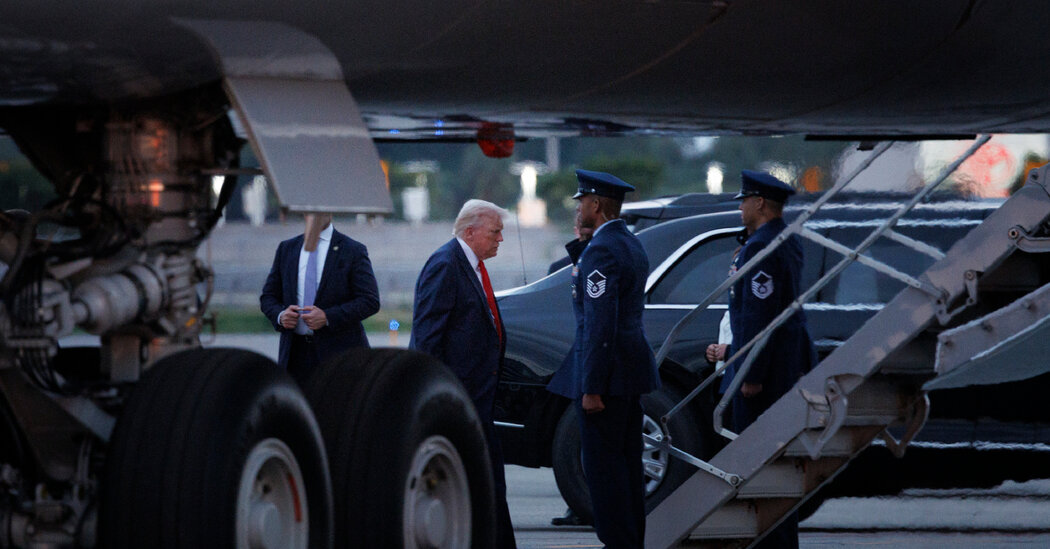
Mr. Trump has found in President Nayib Bukele a willing partner in a plan to step up the removal of migrants from the United States with little or no due process.
President Trump will meet with President Nayib Bukele of El Salvador at the White House on Monday as the administration ramps up its use of a notorious Salvadoran prison for holding migrants deported by the United States.
In Mr. Bukele, who has referred to himself as the world’s “coolest dictator,” Mr. Trump has found a willing partner in a plan for deportations with little or no due process. The removal of the migrants to the prison, known as CECOT, has become a flashpoint in the administration’s attempt to skirt normal immigration practice and the role of the courts in reviewing Mr. Trump’s executive power.
Just a day before the meeting between the two leaders, the Trump administration once again tried to resist a federal judge’s order to bring back a Maryland man who was unlawfully deported to the prison. In a legal filing on Sunday, the Justice Department argued that the courts lacked the ability to dictate steps the White House should take to return the man, Kilmar Armando Abrego Garcia, because only the president had the power to handle U.S. foreign policy.
The Trump administration has fought against returning Mr. Abrego Garcia, a 29-year-old father of three, despite admitting in court that his removal was an “administrative error.” In 2019, an immigration judge had barred the United States from deporting the man by finding that he might face violence or torture if sent to El Salvador. That did not stop the United States from deporting him and scores of other migrants to El Salvador last month.
The Trump administration has justified its use of a wartime authority to deport the migrants to El Salvador by alleging that they are members of violent gangs like MS-13, which originated in the United States and operates in South America, and the Venezuelan criminal group Tren de Aragua.
While some of the deportees had criminal convictions, court papers have shown that the evidence the government has relied on to label some of them as gang members was often little more than whether they had tattoos or had worn clothing associated with a criminal organization.
This post was originally published on this site be sure to check out more of their content.








